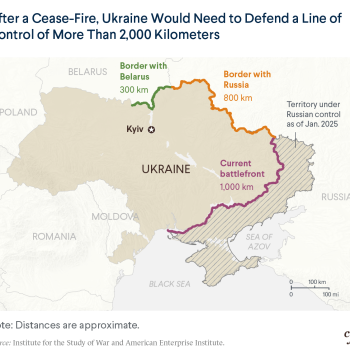For the past few decades, some scientists have claimed there is a massive reservoir of water hundreds of miles below Earth’s surface that has more water in it than that which is in all of Earth’s oceans combined, and perhaps much more. If true, could this water have been the primary source of Noah’s flood recorded in the Bible?
Now, a team of geophysicists believe they have discovered a mammoth reservoir of water about four hundred miles under Earth’s surface. A scientific paper was published about this discovery was published in 2014, and it was entitled “Dehydration melting at the top of the lower mantle.” More recently, The Brighter Side of News reported online about it this week, on Christmas Day, in an article entitled “Mammoth underground ocean contains 3x more water than all oceans combined.” The geophysicist team that made this discovery claims that at least three times the volume of water in all of Earth’s oceans is stored deep inside a subterranean reservoir which consists of a type of porous rock called “ringwoodite.”
Geophysicist Steve Jacobsen was a member of the team that made this discovery. They did it mostly by analyzing data from seismic instruments. He explains, “The ringwoodite is like a sponge, soaking up water. There is something very special about the crystal structure of ringwoodite that allows it to attract hydrogen and trap water. This mineral can contain a vast amount of water under the conditions of the deep mantel.”
At four hundred mile deep, one would think such a water source is not connected to anything on Earth’s surface, such as its oceans. But The Brighter Side of News article then explains that Mr. Jacobsen’s “observations lend credence to the idea that there might be a much more intricate and interconnected global water cycle than previously believed.” The article then suggests that this groundbreaking discovery, if true, will totally revolutionize “our understanding of Earth’s water cycle.” If so, maybe it will revolutionize human perceptions about Noah’s flood.
I think one of the most intriguing stories in the Bible is Noah’s flood. I have written an unfinished book manuscript about this subject which I intend to publish in my Still Here series, perhaps about three years from now.
So, what does the Bible say about Noah’s flood? Genesis 6 informs, “The LORD saw that the wickedness of humans was great in the earth and that every inclination of the thoughts of their hearts was only evil continually. And the LORD was sorry that he had made humans on the earth, and it grieved him to his heart. So the LORD said, ‘I will blot out from the earth the humans I have created—people together with animals and creeping things and birds of the air—for I am sorry that I have made them.’ But Noah found favor in the sight of the LORD” (Genesis 6.5-8 NRSVue).
The Genesis text says twice, “the earth was corrupt (in God’s sight),” and “the earth was filled with violence” (Genesis 6.11-12). When the Bible repeats a matter, it often is for emphasis to indicate how significant or important it is. God also said, “I am going to bring a flood of waters on the earth, to destroy from under heaven all flesh in which is the breath of life; everything that is on the earth shall die (v. 17). Everything? “Heaven” refers to Earth’s atmosphere.
Then God told Noah, “Make yourself an ark of cypress wood, and make rooms in the ark, and cover it inside and out with pitch. This is how you are to make it: the length of the ark three hundred cubits, its width fifty cubits, and its height thirty cubits” (Genesis 6.14-15). The common cubit in those days was the length of a man’s arm, eighteen inches. Thus, the ark was 450 feet long. It also had a roof and three decks inside (v. 16).
Most people know about this story, especially that Noah, his family, and the animals inside the ark survived the waters that God then brought upon Earth’s surface. The text says, “all the fountains of the great deep burst forth” (Genesis 7.11). Could this refer to the huge water reservoir made of ringwoodite that these scientists claim is located hundreds of miles below Earth’s surface? If so, that may have been a much more abundant source of flood waters than that “the windows of the heavens were opened. The rain fell on the earth forty days and forty nights” (vv. 11-12).
The text continues, “The flood continued forty days on the earth, and the waters increased and bore up the ark, and it rose high above the earth. The waters swelled and increased greatly on the earth, and the ark floated on the face of the waters. The waters swelled so mightily on the earth that all the high mountains under the whole heaven were covered; the waters swelled above the mountains, covering them fifteen cubits deep. And all flesh died that moved on the earth … And the waters swelled on the earth for one hundred fifty days” (Genesis 7.17-20, 24).
There are many stories from ancient cultures around the world about a great flood, and many of them are similar to this biblical account that is popularly called “Noah’s flood.” Some of these tales seem to corroborate this Genesis account.
The New Testament affirms that Noah’s flood really happened. Jesus compared it to his yet future second coming by saying, “For as the days of Noah were, so will be the coming of the Son of Man. For as in the days before the flood they were eating and drinking, marrying and giving in marriage, until the day Noah entered the ark, and they knew nothing until the flood came and swept them all away” (Matthew 24.37-39). Also, Noah’s flood is attested in Hebrews 11.7, 1 Peter 3.20, and 2 Peter 2.5.
If Noah’s flood really happened–and I believe it did–was it merely local or worldwide? This is a question that scholars have much debated. It seems most biblical scholars, at least in modern times, think it was local. Even some conservative scholars adopt this viewpoint, for example, Longman III, Temper, and John H. Walton, The Lost World of the Flood: Mythology, Theology, and the Deluge Debate (IVP Academic, 2018).
Several features in the Genesis 6—8 account of the flood seem to describe a worldwide flood, such as God saying, “I am going to bring a flood of waters on the earth, to destroy from under heaven all flesh in which is the breath of life, everything that is on the earth shall die” (Genesis 6.17). And God says likewise, “every living thing that I have made I will blot out from the face of the ground” (7.4).
Then we read, “the waters increased and bore up the ark, and it rose high above the earth. … The waters swelled so mightily on the earth that all the high mountains under the whole heaven were covered; the waters swelled above the mountains, covering them fifteen cubits [=22.5 feet] deep” (Genesis 7.17-20). And it says, “all flesh died that moved on the earth. … He [God] blotted out every living thing that was on the face of the ground, … Only Noah was left and those with him in the ark” (vv. 21-23). All of this appears to indicate a worldwide flood.
The Genesis text further relates, “At the end of one hundred fifty days the waters had abated, … the ark came to rest on the mountains of Ararat” (Genesis 8.3-4). The highest peak in the Great Ararat mountain range in today’s Turkey is 16,945 feet high, which is over 3.2 miles above sea level.
Mount Everest in the Himalaya Mountain range in Asia is the highest point on Earth, being 5.5 miles above sea lever. (The deepest place in Earth’s oceans is the Mariana Trench in the western Pacific Ocean, which stretches hundreds of miles south to Guam and it seven miles deep at its lowest point.)
Is it possible that a reservoir, or perhaps multiple reservoirs, of vast quantities of water located hundreds of miles under Earth’s surface were “all the fountains of the great deep” that “burst forth” so that “all the high mountains under the whole heaven were covered” with water? What do you think?














